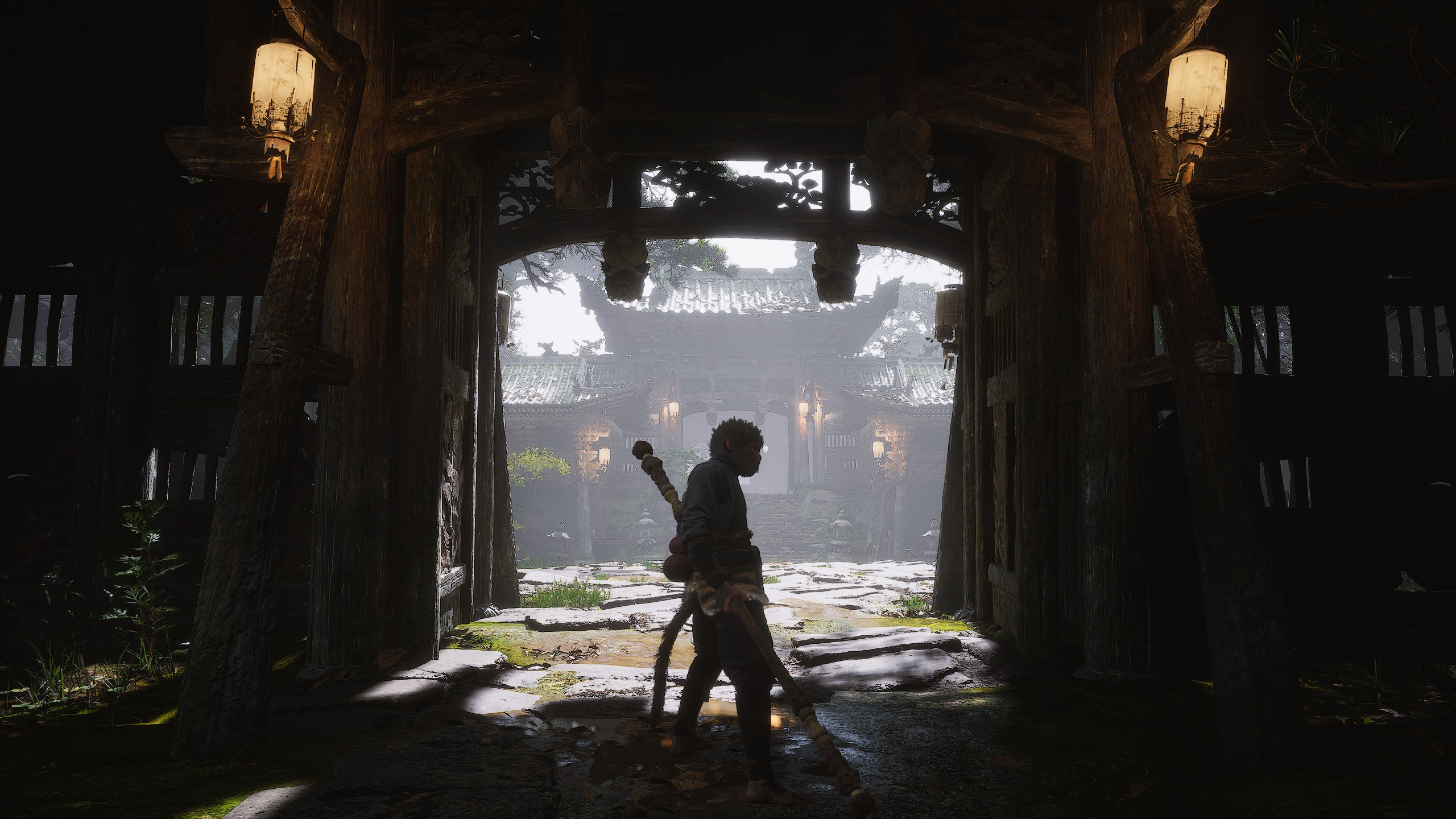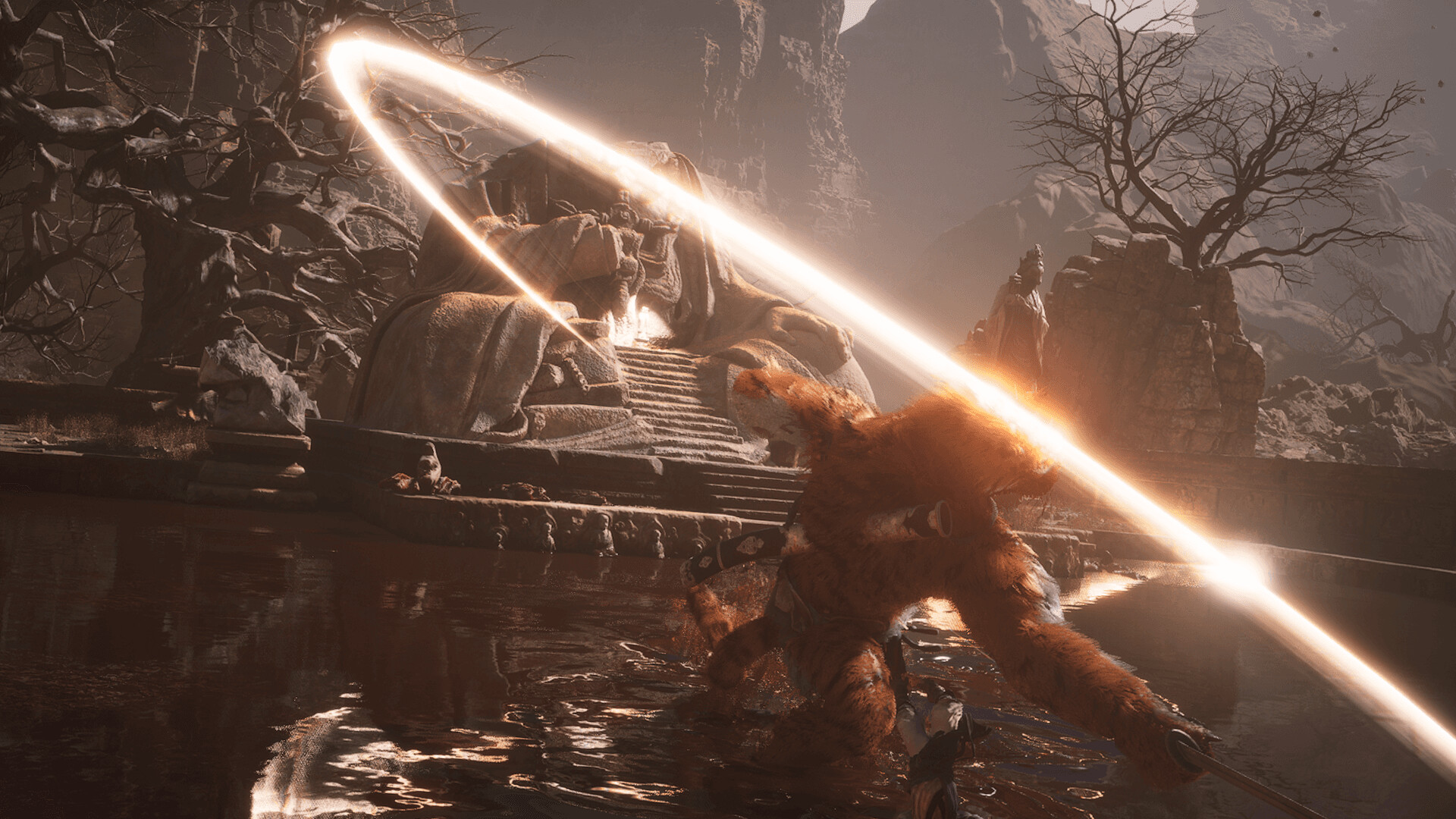How Black Myth: Wukong puts its own spin on the action-RPG genre
I'm a simple man. In the past couple of years, whenever the YouTube algorithms would serve me up another glossy Black Myth: Wukong trailer, I'd watch it, then not spend too much time wondering whether the game could really be as good as those trailers were teasing, or even thinking about what kind of game it really was. But now, with the code finally in my hands, I can't hide behind not knowing any more. Is Black Myth: Wukong a Soulslike? Is it an ARPG? What even is an ARPG when you have games as diverse as Diablo, Elden Ring, and Borderlands in that big bracket? Now that I'm three chapters and some 16 hours deep into the game, I have some answers.
First up, let's address the Soulslike thing. At first glance, there's obvious Souls DNA in Black Myth, though I felt those DNA markers lessening the deeper I got into it. The UI, the Buddhist shrines acting as checkpoints and healing stations (at the cost of respawning enemies), the bullish boss fights, and a combat system heavily reliant on timing, dodging, and counters, with punishment awaiting those who end up resorting to panic-rolling – it's all here, and yet somehow Black Myth steps out from that looming soulslike shadow in a way that many other games don't.
Enter the arena

The combat is way more flashy for a start, with a progression system that lets you unlock dozens of moves across at least 10 different skill trees spanning stances, magic, transformations, and 'foundational' abilities. From the spinning staff move that windmills away projectiles while you close in on pesky archers, to heavy attacks that see your monkey somersaulting into the air, absorbing damage, them crashing down on enemies with a hyper-extended staff, you feel like a badass martial arts master pretty much from the off, rather than a hapless scrub fighting insurmountable odds. The stakes are still high, to the point that I'd audibly grunt when a bit of jankiness would cause my heavy attack not to register, or if I'd get swept into a boss' grab attack even though I was clearly out of range, but your health bar definitely gets blasted a little less harshly than in your typical Soulslike.
While there are RPG-like numbers attached to things like critical hit chance, elemental resistances, and defence, it's all pretty streamlined, with the bigger focus being on those skill trees. Your primary weapons are a staff and spear, so it really feels like you're on a journey of mastering and upgrading these weapon archetypes – although the option to experiment with different builds for each boss battle, swapping between spells and transformations, is certainly there if you want it.
The spectacle of combat in Black Myth Wukong almost has that PS5 open-world adventure feel, like a God of War, but stops short of the grab attacks and quick-time events (though I did find myself on the receiving end of a few boss attacks that forced me to watch myself get tossed up and smashed into the dirt for a good five seconds). If we are to call this a soulslike, it's probably the most cinematic soulslike around.
Speaking of bosses, one illusion that I need to dispel is the idea that Black Myth is predominantly a boss rush. The boss density is higher than in most games, but there's plenty of exploration too, with optional pathways leading you to eccentric NPCs, meditation spots, and – well, yes – mini-bosses. The exploration aspect really comes into play in the desert realm of Chapter 2, which is way more expansive than Chapter 1. Where in Chapter 1, many of the sights in the distance were just backdrops, in Chapter 2 you can go to most of the places you see in the world, and at points I even felt a little lost amidst all the different pathways and possibilities. But that was fine, because whichever path I took would yield some kind of reward, not to mention that the environments look so good – with their crumbling forts, monasteries and temples nestled among the harsh rocks – that it was a joy to delve into them.
Exploring new lands

But maybe the most unique spin in Black Myth: Wukong is that it's both made and set in China. Sure, barely a year goes by without a game revolving around the semi-mythical 'Three Kingdoms' period of Chinese history, but even most of those are Japanese-made, and as someone who's played an embarrassing amount of Dynasty Warriors, and also Wo Long: Fallen Dynasty last year, it's refreshing to play a China-set game not revolving around the Three Kingdoms mythos for once.
Sign up to the GamesRadar+ Newsletter
Weekly digests, tales from the communities you love, and more
Journey to the West, the classic Chinese novel which Black Myth is based on, has also had its share of game adaptations, but again they've been mostly Japanese or Western-made, so having a Chinese cultural twist on the Chinese novel feels, well, novel. The wealth of Buddhist imagery, gorgeous animated mini-movies between chapters, poetry and lore through entries, cast of eccentric characters, and Mandarin dialog (which I strongly recommend over the… interesting English dub) reflect a culture that hasn't, until now, really spoken for itself in video games.
So yes, Black Myth: Wukong does owe a bit to the work of FromSoftware, but it's also so much more than that. It's its own mythological beast, and it's making a big impression so far. If it keeps up its relentless momentum through to the finale, then we could have a Game of the Year contender on our hands.
Rob is a freelance games journalist, SEO and content manager. He's written for PC Gamer, GamesRadar, Kotaku, Rock Paper Shotgun, WhatCulture, NextPit, PCGamesN, VG247, Eurogamer, TechRadar, and more.


